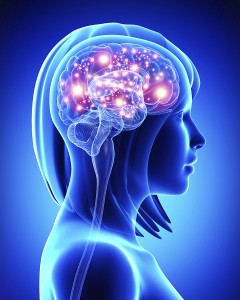Serotonin and Addiction: Is a New Treatment Approach Around the Corner?

A new study has found a direct correlation between the brain chemical serotonin and drug addiction; a new understanding that could potentially lead to a revolutionary approach in addiction treatment.
The research was conducted by a PhD student, Sarah Bradbury, who will be receiving the prestigious advanced degree this week in Psychology, found that the serotonin levels in a first-time user’s brain play a critical role in whether they will develop an addiction. Bradbury also suggests that serotonin levels then decrease as the drug use becomes more frequent.
Although her research was initially focused on MDMA and cocaine, Bradbury said her findings can apply more broadly and to other drugs of addiction and abuse.
“People develop drug addiction due to changes in specific brain systems following repeated drug use, but not all drug users become addicted,” she explained. “Another brain chemical, dopamine, seems to be the critical determinant of drug addiction during this phase.”
Bradbury’s findings serve to bolster previous research; her findings are similar to the findings of other projects. For instance, in December of 2011, a study from researchers at Vanderbilt University found that there was a correlation between recreational use of ecstasy and sustained increases in serotonin receptor density, which is noteworthy because it then can lead to major serotonin depletion and severe depression once the drug is no longer present in the user’s system.
Dopamine, another major feel-good brain chemical, has also been implicated as playing a major role in cases of drug addiction. Depleted levels of dopamine can lead to a susceptibility to addiction. And it’s no wonder. Drugs that are used recreationally – which are also typical drugs of abuse, are sought out by users because they temporarily increase serotonin and dopamine levels, inciting that euphoric high.
Bradbury’s findings, and those like hers, could have other, far-reaching implications.
Last July, a study was published in the journal Proceedings of the National Academy of Sciences, which found that chronic marijuana use diminished the brain’s dopamine reaction to stimulants, meaning that marijuana users would experience less of a reward or motivation from the things that typically give pleasure to most people. Furthermore, habitual marijuana use – despite stereotypes of the easy-going pothead, could also leave users feeling more irritable and moody.
Serotonin and Addiction: Is a New Treatment Approach Around the Corner?
So, if medical professionals, and more specifically those who specialize in the treatment of drug addictions, begin to understand further the important roles that brain chemicals such as dopamine and serotonin play in drug use and addiction, newer, more effective treatment methods could be developed. Not only that, as with Bradbury’s findings, health care providers may even be able to pinpoint who and when people are at-risk for developing addiction.
Perhaps simple blood testing can monitor brain chemical levels and that, combined with other interventions, such as therapy and medications, like antidepressants – which regulate serotonin and dopamine levels – can be of great benefit for people with a tendency to abuse drugs and for those for whom drug addiction runs in the family.
If you or someone you love is struggling with substance abuse or addiction, help is available. By calling toll-free 1-800-777-9588, you will speak directly with an Addiction Specialist, day or night, who can answer your questions. You are not alone.
